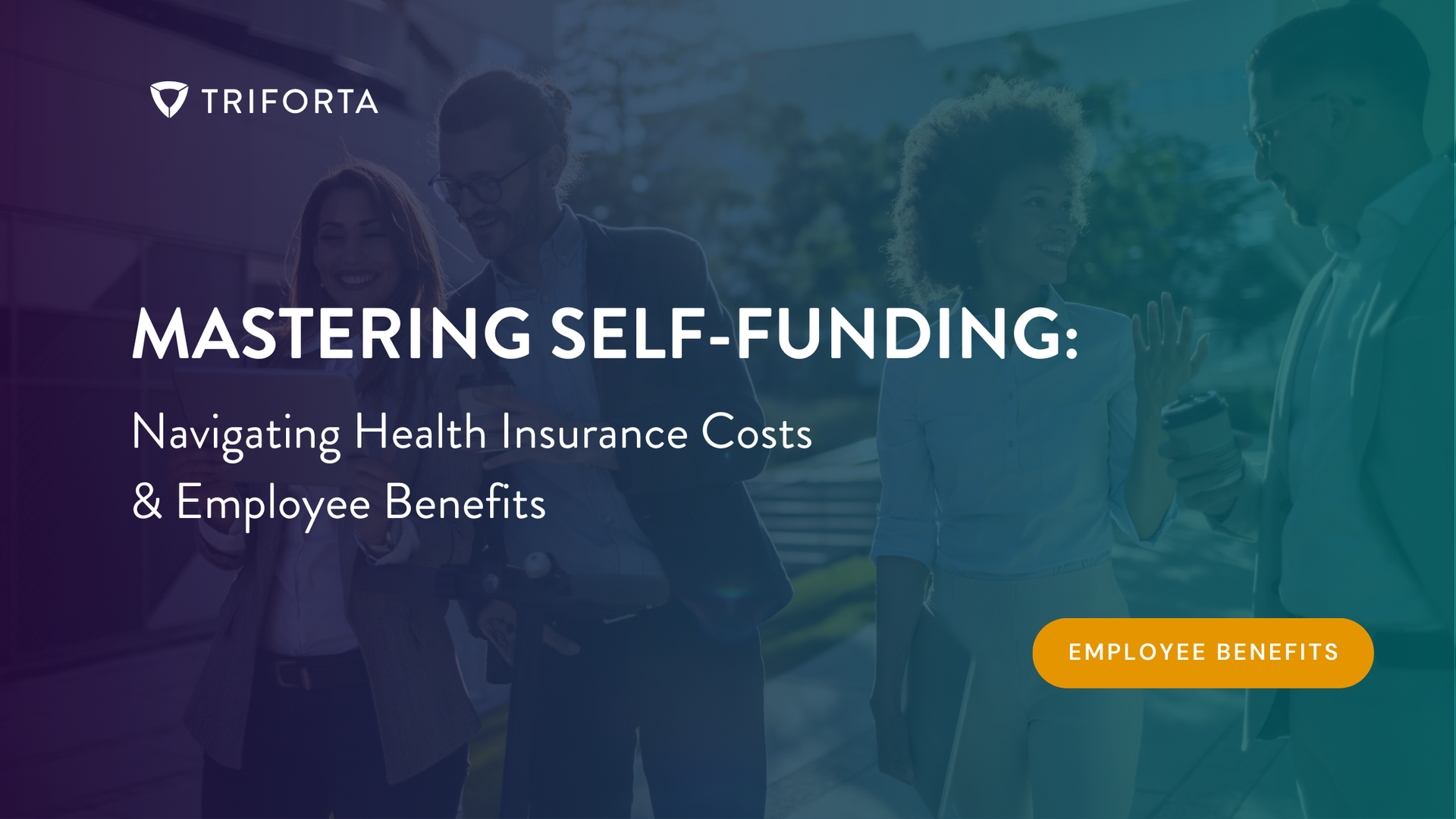Expert Strategies for Managing Health Insurance Costs in 2024
Hey there! If you’re an employer, you already know that healthcare costs are rising fast, making it harder to provide your employees with top-quality coverage without blowing your budget. But here’s the good news—there are expert strategies you can use to manage those costs while ensuring your team gets the care they need. Let’s dive in!
Understanding the Cost Drivers
Before we jump into solutions, let’s break down what’s driving these costs. In my experience working with employers across industries, I’ve noticed a common trend: around 80% of healthcare expenses typically come from just 20% of the population. We call these individuals high-cost claimants, or the “top five percenters.”
So, what does this mean for your bottom line? To make a real impact on your overall healthcare costs, you need to focus on these high-cost cases. But how do you do that without compromising the quality of care? The key is to be proactive.
Here are some steps you can take:
- Improve access to primary care to catch health issues early.
- Direct employees to the right specialists who can handle their conditions more effectively.
- Set up direct contracts with hospitals or facilities for procedures like orthopedic surgeries to save on costs.
By taking a more targeted approach, you’ll start to see a difference. Remember, you don’t have to accept high costs as inevitable—there’s always something you can do!
Identifying and Addressing High-Cost Claims
The first step to managing your health plan’s costs is knowing exactly where your money is going. As an employer, you should ask your broker or benefits consultant for detailed data on your highest-cost claims—not names, but the types of illnesses and conditions driving those claims. A good broker should know this off the top of their head.
Once you’ve identified the areas causing the most financial strain, you can take action. Some strategies include:
- Setting up programs to help employees manage chronic conditions more effectively.
- Steering employees toward Centers of Excellence, which offer high-quality care for complex procedures.
- Reviewing the use of high-cost medications and exploring cost-effective alternatives.
It’s all about being proactive rather than reactive when it comes to managing these claims. There’s always a way to bring costs down without sacrificing care.
Embracing Self-Funding
If you’re serious about managing healthcare costs, self-funding is an option worth considering. Many employers stick with fully insured plans, but for companies with as few as 75 employees, self-funding can offer significant cost savings and greater control. One of the biggest advantages? You get full access to your claims data.
This transparency lets you see exactly where your money is going, making it easier to find areas where you can save. Plus, self-funding often leads to lower administrative costs.
Now, you might be thinking: “What if we face catastrophic claims that wipe out our reserves?” Don’t worry! There are options like stop-loss coverage that can protect you from those worst-case scenarios.
And if you’re not quite ready for full self-funding, level-funding could be a great middle ground. This model combines elements of both fully-insured and self-funded plans, offering some of the benefits of self-funding without all the risks.
Overcoming Fears About Self-Funding
It’s natural for employers to be concerned about the risks of self-funding, especially when it comes to large claims. But here’s the thing: you can mitigate those risks with the right strategies. Stop-loss insurance can protect you from high-cost claims that exceed a certain threshold, giving you peace of mind.
The benefits of self-funding often outweigh the perceived risks. When you go this route, you can:
- Have more control over your plan design, tailoring it to your employees’ needs.
- Improve cash flow since you’re not paying premiums upfront.
- Gain access to detailed claims data that can help you find areas to cut costs.
If you’re still not ready for full self-funding, level-funding can be a great first step. It offers predictable monthly payments and even refunds if claims come in lower than expected. That way, you can dip your toes into the self-funding world without diving in headfirst.
Choosing the Right Broker or Consultant
Your broker plays a critical role in managing your healthcare costs, but not all brokers are the same. In my experience, I’ve seen two types: “carrier lap dogs” and “employer guard dogs.”
- Carrier lap dogs tend to act more like salespeople for insurance carriers. They often work at brokerages driven by carrier commissions and retention bonuses, and they’re less likely to recommend self-funding or the use of independent third-party administrators (TPAs).
- Employer guard dogs, on the other hand, are focused on your best interests. They:
- Charge fixed fees, eliminating the conflict of interest that comes with carrier commissions.
- Recommend self-funding and independent TPAs where appropriate.
- Are detail-oriented and fully engaged in managing your account.
Having a broker who’s truly on your side can make all the difference. They’ll fight for your interests and help you find ways to reduce costs while maintaining a high level of care for your employees.
Navigating Regulatory Changes
It’s important to stay informed about regulatory changes, as they can impact your healthcare costs. For instance, the Consolidated Appropriations Act (CAA) of December 2021 introduced new disclosure requirements for brokers. This means your broker must disclose any commissions they receive from carriers, which can help you spot potential conflicts of interest.
Ask your broker about their fees and whether there are any financial incentives that might affect their advice. By staying on top of these changes, you can make more informed decisions and avoid unnecessary costs.
Empowering Employees to Manage Health Insurance Costs
While much of the focus is on what employers can do to manage healthcare costs, don’t forget that your employees also play a key role. When employees understand their benefits and how to use them, it can lead to better health outcomes and lower overall costs.
Here are a few strategies to help your employees become more engaged with their healthcare:
- Provide clear, easy-to-understand information about their health insurance options.
- Offer tools that allow them to compare costs for different procedures and medications.
- Encourage the use of preventive care services, which are often free under most health plans.
- Promote wellness programs that can help employees stay healthier in the long run.
By empowering your employees with the right information, you can reduce unnecessary healthcare spending and improve their overall well-being.
Innovative Strategies to Manage Health Insurance Costs
As the healthcare landscape evolves, new strategies for managing costs are emerging. Here are a couple of innovative approaches you might want to consider:
- Direct Primary Care: This model allows employees to pay a monthly fee for unlimited access to primary care services, bypassing traditional insurance for routine care. It can lead to better preventive care and early intervention, which helps reduce costly specialist visits and emergency room trips.
- Reference-Based Pricing: Instead of negotiating rates with providers, some employers are adopting reference-based pricing. This involves setting a fixed amount the plan will pay for specific services, often based on Medicare rates plus a percentage. It’s a cost-effective approach, but it needs to be implemented carefully to avoid balance billing issues for employees.
Looking to implement these cost-saving solutions in your business? Connect with a Triforta advisor today and discover how our data-driven solutions can help you!
Conclusion
Managing health insurance costs can be challenging, but it’s not impossible. By focusing on high-cost claimants, considering self-funding, working with the right broker, staying informed about regulatory changes, and empowering your employees, you can take control of your healthcare spending. Remember, there’s always something you can do—don’t accept rising costs as inevitable. Keep exploring new strategies and stay proactive, and you’ll be well-positioned to manage your health insurance costs effectively while providing your employees with the coverage they need.
Got questions? We’re here to help. Reach out to us, and let’s discuss how these strategies can work for your business!

CAPABILITIES
"TRIFORTA" is a registered trademark employed by the TRIFORTA Partners group of companies. All insurance offers, requests, and guidance provided through this website are delivered by licensed affiliated insurance producers of TRIFORTA, namely Elite Consulting and Insurance Services and Rodney Mattos. No offers, requests, or guidance are extended through this website in any state where one of the aforementioned TRIFORTA licensees lacks the required license. For a comprehensive list of all relevant license numbers in each state, please refer to our License Page.
New Paragraph










